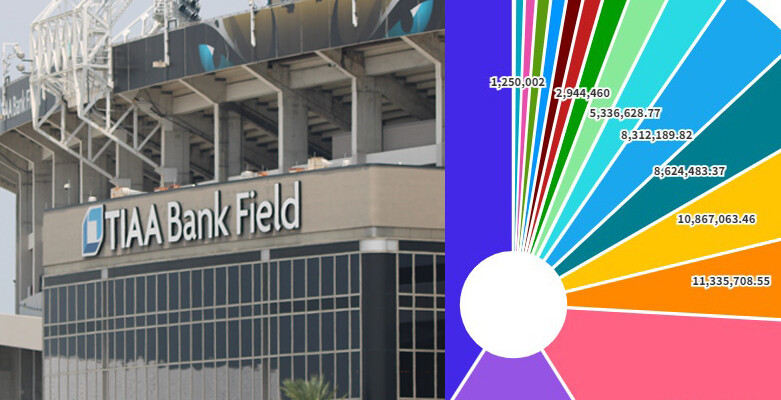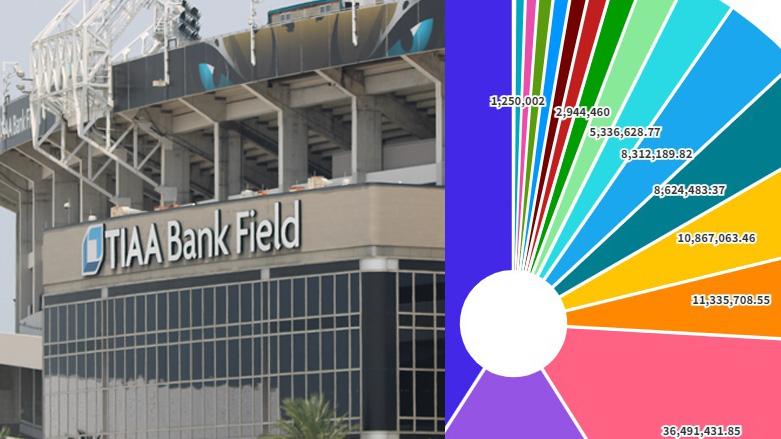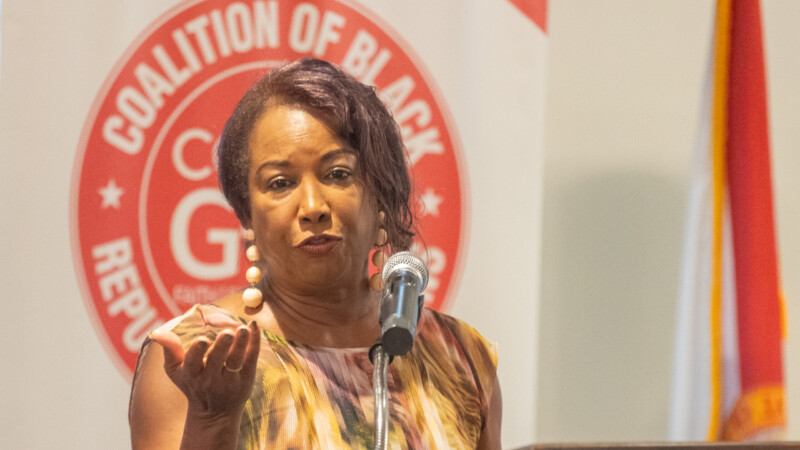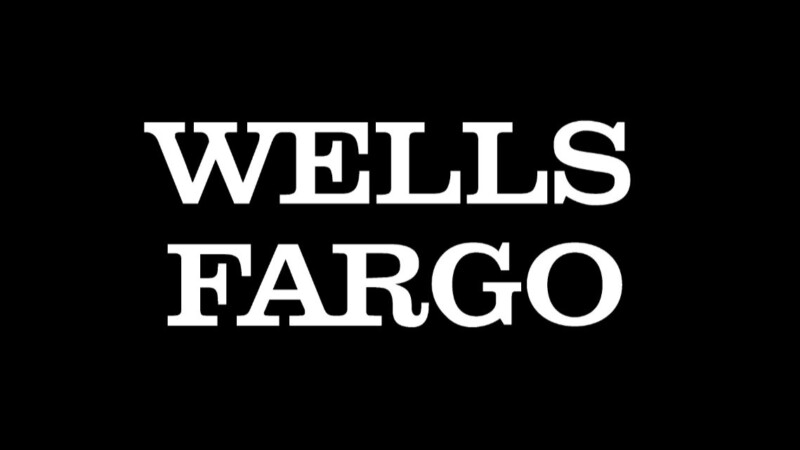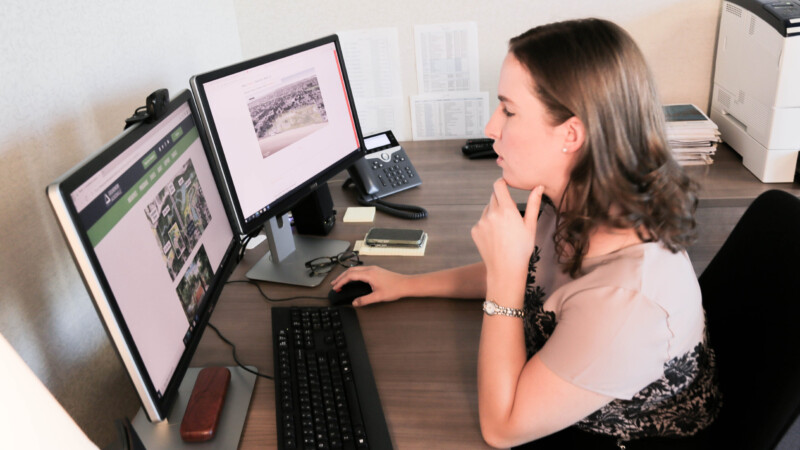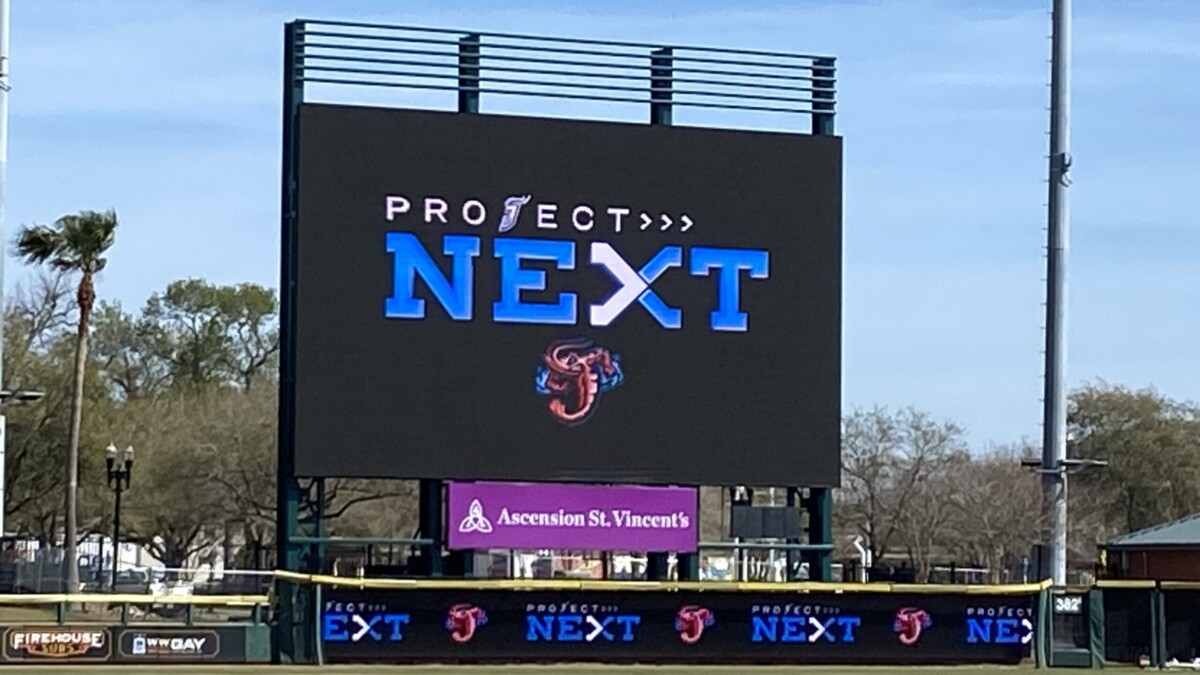The Jacksonville Jaguars are negotiating with the city to split the cost of a $1.4 billion stadium remodel. What does that purchasing power look like?
Jacksonville Today dove into the city’s capital improvement plan to find out.
Mike Weinstein, chief negotiator for the mayor’s office on the Jags deal and former longtime finance chief for the city, tells Jacksonville Today that the negotiations for the “Stadium of the Future” are expected to continue for the next few months. “The goal is to have it be a logical, fair distribution” between the city and the team owned by billionaire Shad Khan.
Tough decisions, few options
The negotiation is happening as the city is bumping up against some other difficult decisions, says Mike Clark, former longtime editorial page editor for the Florida Times-Union and a Jacksonville Today contributor.
For instance, a new jail.
This week, City Council member Michael Boylan, who chairs the special committee on jail issues, estimated a new jail could weigh in at $1.2 billion — a far cry from the city’s previous estimate of $381 million — an amount that likely would fall entirely upon the city.
“One billion dollars for a new jail?” Clark says. “Where are they going to come up with that?”
‘What else do we need?’
“The big issue is (between the) sports complex and other projects,” at-large City Council member Matt Carlucci tells Jacksonville Today. “Well, what are the other projects? And that’s always kind of the big question, right?”
To compare the amount of spending, because a “logical, fair distribution” is unclear at this point, let’s assume a 50-50 split.
The $1.4 billion, divided in half, is $700 million, but that would not likely be forked over in one fell swoop. For this thought exercise, let’s divide it by 15 years — a realistic annual debt-service timeline. That comes out to $46.6 million annually, plus interest.
A $46.6 million bill is double some of the highest price tags of the items added this year to the city’s long-term budget, called a capital improvement plan. This added spending was adopted last summer as Mayor Donna Deegan and a new City Council took office:
For this year’s newly added capital spending, roadway resurfacing for the entire county tops the list, at $26.8 million. Right below that is the existing Stadium Capital Reserve fund at $20 million (more on that later), along with $20 million for UF Health Jacksonville, which is part of an ongoing agreement with the hospital.
The $46.6 million is also over 2-and-a-half times the $18 million total cost of all the new items added to the capital improvement plan with price tags of under $1 million. They include $750,000 for a Musical Garden at the Performing Arts Center, $160,000 for beautifying historic African American cemeteries, and $100,000 for a pickleball court at Black Hammock Park.
Going it alone
It is highly likely that neither the jail nor the stadium would get financing help from the state of Florida, as Clark has written.
New York, Tennessee and Louisiana all provided financial aid to their own NFL franchises: In New York, a new Buffalo Bills stadium to the tune of $1.4 billion had a buy-in of $250 million from Erie County, and the state contributed $600 million.
But that is a highly unlikely option here in Jacksonville.
Gov. Ron DeSantis made national headlines back in 2022 when he vetoed $35 million for a new spring training facility for the Tampa Bay Rays. At the time, DeSantis said, “I don’t support giving taxpayer dollars to professional sports stadiums, period.”
That same year, DeSantis also vetoed funding for a prison, which would have cost $840 million.
So, with no state assistance, Jacksonville needs to find another way, Clark says.
Stadium funding already approved
The city owns the stadium and has a contract with ASM Global to manage that facility, along with five other municipal facilities. Regardless of whether the city and team reach a deal for the Stadium of the Future, more than $240.6 million in total costs for EverBank Stadium are already in the capital improvement plan. That includes ongoing maintenance costs and the city’s $45 million in construction costs for the Daily’s Place amphitheater and flex field that was approved back in 2015 – another 50-50 cost-sharing agreement between the city and the team.
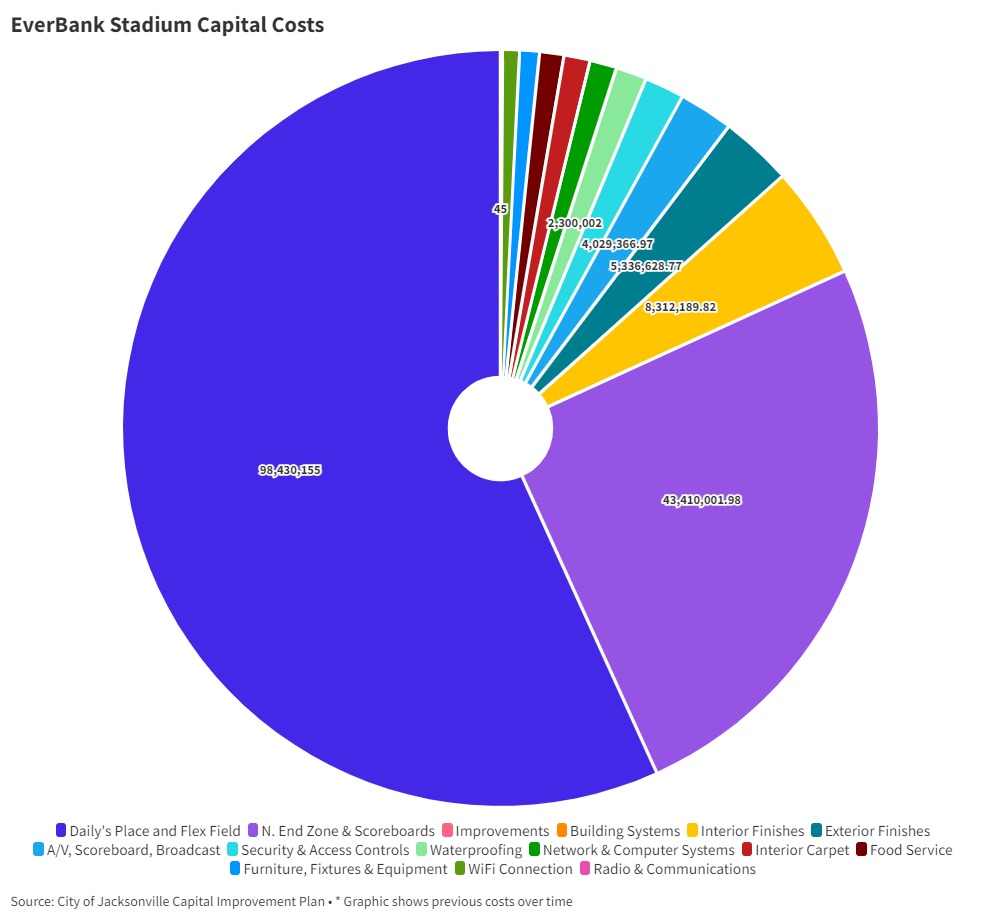
Also in the capital improvement plan – but set for the future – is the $20 million Stadium Capital Reserve fund, a one-time budget item that the City Council approved last year.
This week, about half of those funds were moved so the city can allocate them for design and construction of the new stadium. Weinstein explains that the funds weren’t “spendable” and needed to be moved, but the move didn’t reflect an additional funding request.
The $10 million is for “continuing the design work, which will take many, many months still to come, and to hire the construction company to represent us to understand exactly what the Jaguars are proposing, he says.
Of the $20 million stadium reserve fund, a little over $3.5 million came from “fuel and bed tax” funding.
Jacksonville’s bed tax revenue, collected from visitors to local hotels, is broken up into three parts. Of the total, 33% goes toward operating and maintaining the stadium, another 33% is used for marketing Jacksonville as a tourism destination, and 33% is used for stadium improvements.
But bed taxes alone are not going to produce the kind of revenue the city needs to cover the renovations in a short period of time, Clark says.
Despite the financing challenge, Councilman Matt Carlucci says the stadium funding deal deserves careful consideration.
“But for the Jaguars, would we be putting this kind of money, you know, towards our stadium? I would say no,” says Carlucci. “But for the Jaguars. You know, a lot of people might not even know Jacksonville exists.”
Editor’s note: This story has been updated to clarify the capital budget timeline.

Casmira Harrison is a Jacksonville Today reporter focusing on local government in Duval County.

